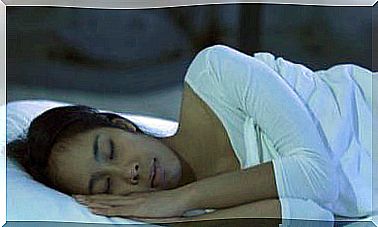Schizophrenia: Symptoms And Causes
Schizophrenia is a known but little understood mental disorder. In this article we will tell you all about it, its symptoms and its causes.

In the past, and still today, it is taboo for some people to talk about mental illness. Little by little progress has been made on this issue. In particular, regarding schizophrenia, in the general population there is confusion about its symptoms and causes.
In this article we will explain everything about this mental disorder, as serious as it is common, since its incidence is relatively high. In addition to its definition, it will detail what concerns symptoms, etiology, as well as patient care.
What is schizophrenia?
Schizophrenia was called dementia precocious, in the first instance, by Emil Kraepelin. In any case, historians of psychiatry keep precautions before directly assimilating this concept to the current one.
It is a mental illness characterized by perceptions or thoughts unrelated to reality. Often there are hallucinations or delusions, exaggerated feelings and emotions, or incongruous behaviors.
All this translates into social isolation of the patient, erratic behaviors, disorganized and chaotic speech, loss of concentration and memory and neglect of daily activities, including personal hygiene.
In general, schizophrenia affects the functioning of the person from the social and cognitive point of view. In this way, he limits his relationship with others, with himself and with the world around him. Therefore, it can constitute a disabling disorder.
According to the World Health Organization (WHO), more than twenty million people in the world are schizophrenic. Although the figure could be higher, because not all patients are diagnosed. On the other hand, schizophrenia is more prevalent in men than in women, in a 60-40 ratio.

Schizophrenia and its symptoms
In schizophrenia the symptoms can be diverse. Here we will list the most important and frequent, although the combination of them is the standard of clinical presentation. In any case, there are up to 5 types of pictures of this pathology, each with its specific characteristics.
The obvious signs are usually the following:
- Hallucinations: seeing, hearing or perceiving something that is not real. Many schizophrenic patients claim to hear voices in their heads.
- Delusions: false beliefs derived from a distorted interpretation of one’s perceptions or experiences. Paranoia is common in schizophrenics.
- Fantasies: tendency to believe or believe something without basis in reality. For example, thinking that you are an important character.
- Disorderly conduct: chaotic, extravagant, for no apparent reason or purpose. Stereotypies may occur.
- Catatonia: Sometimes the patient falls into a state of catatonia, holding the same posture rigidly and resisting to move.
- He speaks stammering and incoherent: with a little elaborate speech and without pertinence. This leads to the inability to communicate with others in an assertive manner.
- Emotional disturbance: it can manifest as apathy, disconnection or anhedonia. It also goes to the extreme of being overly attached to something of little importance.
- Cognitive disorders : disordered thinking, difficulty concentrating, little effectiveness in performing complex tasks, impaired functions, memory loss.
- Disinterest: with respect to work, academic, social, cultural and sports activities. There is poor socialization in general.
- Uncleanliness and personal neglect.
Causes of schizophrenia
So far, the cause of schizophrenia has not been established with certainty. It is considered that, more than a single origin, there may be a combination of genetic, environmental and personal factors related, even, with lifestyle.
All this affects the functioning, structure and chemistry of the brain. Among those that affect or are associated with a greater predisposition to develop schizophrenia are the following:
- Genetics: people with a close schizophrenic relative (parents or siblings) have a higher risk than is usual in the general population. Even in twin brothers, when one of them suffers from schizophrenia, the other has a high probability of suffering from it as well.
- Health problems: both at the time of delivery and before or after it. Various infections in mother and fetus, lack of oxygen, low birth weight, mother-child blood incompatibility.
- Stressful situations or consumption of drugs and other substances: they can be triggers in people with a genetic predisposition.
On the other hand, it has not been conclusively proven that there is any relationship between head injuries or head injuries and schizophrenia. Therefore, the association is not documented.

Care of the patient and his environment
Much progress has been made in treating schizophrenia and its symptoms, to the point where hospitalization is no longer considered the first option. Rather, the use of psychotropic drugs, as well as psychosocial support for the patient and their families, have proven to be effective.
This will depend on the disposition and attitude of the people who are in the immediate environment. Their action is very important, since the schizophrenic patient is not aware of their situation and is not going to go by himself to a health center to request a therapeutic approach.
In this sense, it is up to the family, partner or close friends to intervene. It is important to take into account the warning signs, according to the symptoms that we indicate.
The care and care of the patient with symptoms of schizophrenia should not be neglected, including assisting with their treatment. Once you have been diagnosed and medicated, you should be supported in tasks that you cannot do on your own.









